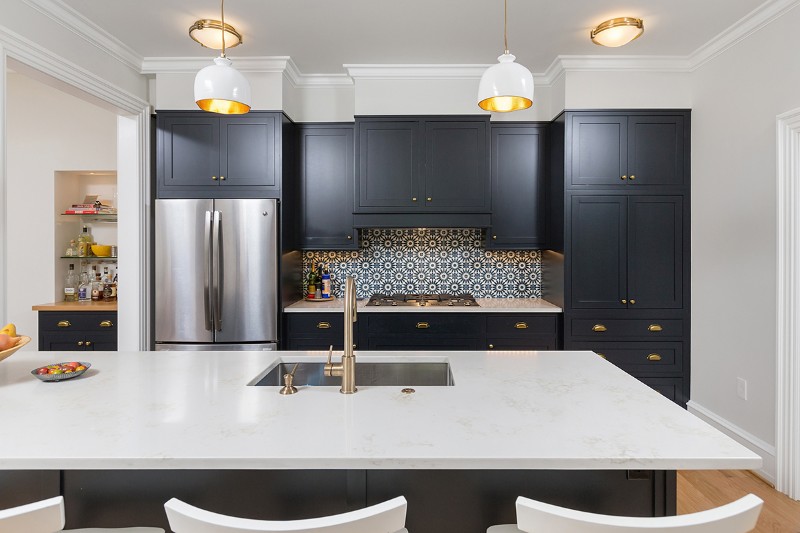The kitchen benchtop is not just a centerpiece of kitchen design; it’s a critical component that balances aesthetic appeal with functional durability. Whether you’re undertaking a new build, a renovation, or simply dreaming about a future project, selecting the right material for your kitchen benchtop is a decision that requires careful consideration. This guide delves into the world of benchtop materials, highlighting the key factors to consider for durability and style, ensuring your kitchen isn’t just beautiful but also built to last.
Understanding the Role of Kitchen Benchtops
Contents
Kitchen Benchtops serve multiple purposes – from being the primary workspace for meal preparation to the social hub where guests gather. They must withstand daily wear and tear, including heat, spills, cuts, and more. Thus, choosing a material that meets both your aesthetic preferences and practical needs is essential.
Factors to Consider
Durability
A benchtop should resist scratches, stains, and heat, ensuring it remains in pristine condition for years. Consider your cooking habits and the level of activity your kitchen sees when choosing a material.
Maintenance
Some materials require more upkeep than others. While natural stones like granite and marble need regular sealing, engineered stones offer a more maintenance-free solution.
Aesthetics
The material should complement your kitchen’s overall design theme. With a wide range of textures, colors, and finishes available, the right benchtop can enhance your kitchen’s aesthetic appeal.
Budget
Budget constraints play a significant role in material selection. While some options, like laminate, offer a cost-effective yet stylish choice, others, like quartz and granite, represent a more significant investment.
Top Kitchen Benchtop Materials
Granite: Timelessly Elegant
Granite, a natural stone, is known for its durability and unique veining. No two slabs are alike, ensuring a unique kitchen centerpiece. It’s heat-resistant and, when sealed properly, can resist stains and scratches. However, granite requires periodic sealing to maintain its luster and prevent staining.
Quartz: Engineered for Excellence
Quartz benchtops are engineered from crushed quartz mixed with resin, creating a highly durable, non-porous surface. Available in a myriad of colors and patterns, quartz can mimic the look of natural stone without the same level of maintenance, making it an increasingly popular choice among homeowners.
Marble: Luxuriously Veined
Marble is renowned for its striking veining and soft, elegant aesthetic. While it can add a touch of luxury to any kitchen, marble is porous and prone to staining and scratching. Regular sealing and careful maintenance are required to preserve its beauty.
Laminate: Budget-Friendly Style
Laminate benchtops offer a cost-effective solution without compromising on style. With advancements in technology, laminates now come in various designs, including realistic stone and timber patterns. While not as durable as stone, high-pressure laminates are resistant to stains and scratches, making them suitable for busy kitchens.
Timber: Warm and Natural
Timber benchtops bring warmth and character to a kitchen. Available in various species, timber can be customized to suit any design aesthetic. However, it requires regular sealing and can be prone to scratching and water damage if not properly maintained.
Concrete: Industrial Chic
Concrete benchtops offer a modern, industrial look that can be customized in terms of color, finish, and shape. While concrete is durable and heat-resistant, it’s porous and requires sealing to prevent stains. Concrete can also develop a patina over time, adding to its unique character.
Stainless Steel: Sleek and Professional
Favored in professional kitchens for its hygienic qualities, stainless steel is heat-resistant, durable, and easy to clean. It offers a sleek, contemporary look but can be prone to scratches and fingerprints.
Porcelain: Versatile and Durable
Porcelain slab benchtops are a newer entrant to the market, offering extreme durability, heat resistance, and a wide range of design options. Porcelain can mimic the look of marble, wood, or even concrete, providing versatility in design without the maintenance issues associated with natural materials.
Conclusion
Choosing the perfect kitchen benchtop material involves balancing durability and style to suit your lifestyle, design preferences, and budget. From the timeless elegance of granite and the engineered durability of quartz to the warm natural beauty of timber and the industrial chic of concrete, there’s a material to suit every kitchen. By carefully considering the factors outlined in this guide, you can select a benchtop that not only complements your kitchen’s design but also stands the test of time, ensuring your kitchen remains the heart of your home for years to come.

